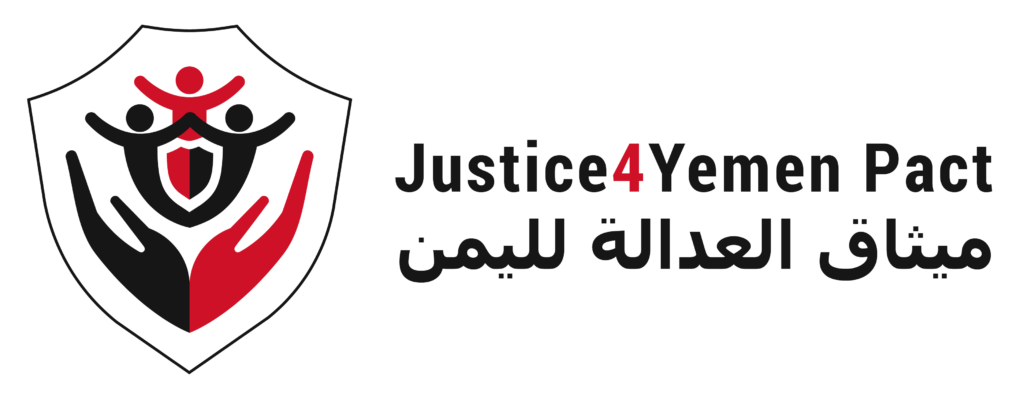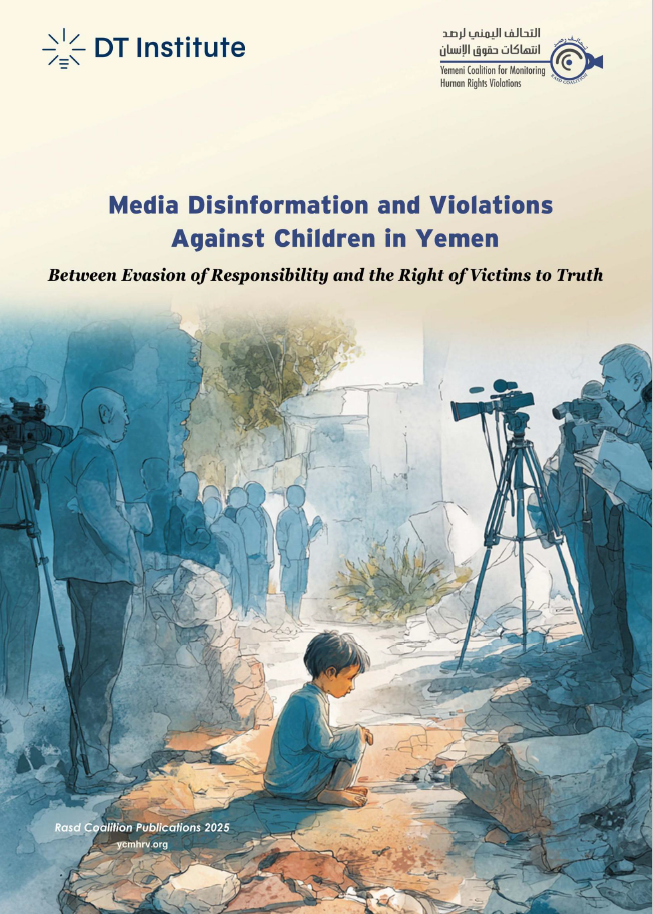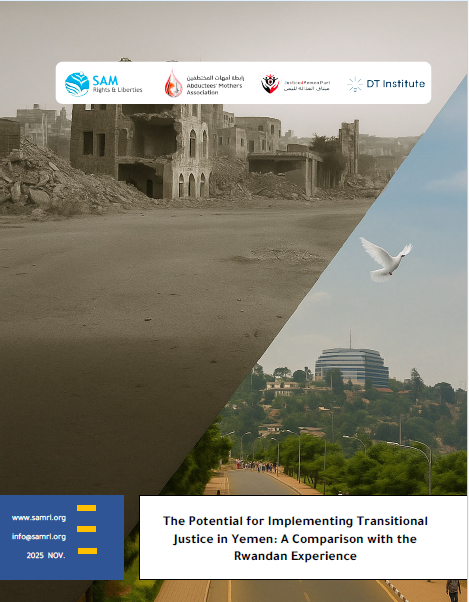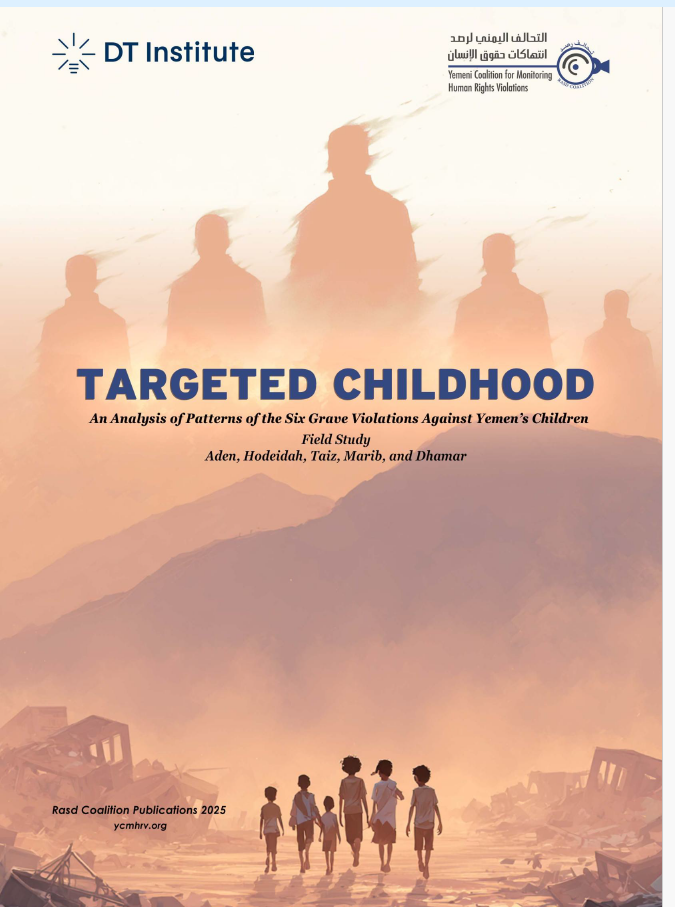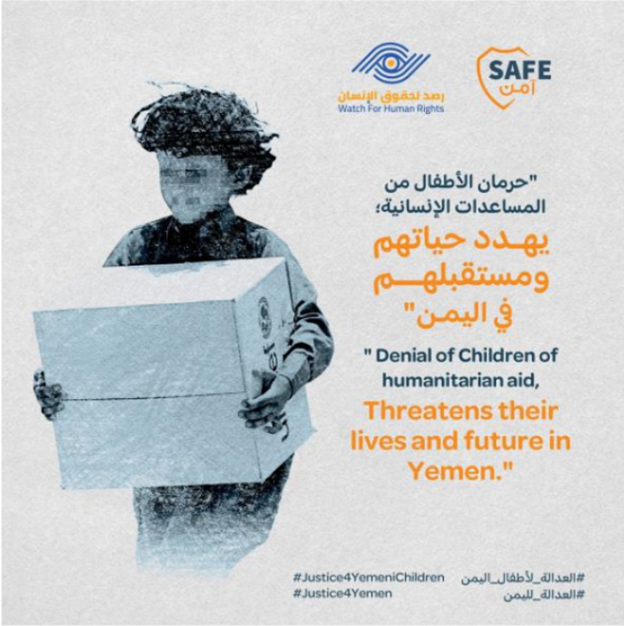
Denial of humanitarian aid is a grave violation of children’s rights, as it prompts them to engage in the Labour market at an early age. Abdullah Adel (17 years old ) from Aden governorate, was forced to leave his school and work as a taxi driver in the governorate, as a result of denial of humanitarian assistance for him and his family in the “footprint” cash assistance program for poor families in Yemen, which is estimated at 11,000 Yemeni Riyals for each member of the family. ” They denied me because I don’t support them!” This is how the child Abdullah, expressed the reason for being excluded from humanitarian assistance. He then continued, explaining that the registration of families for getting humanitarian assistance is not based on objective and reasonable criteria, but rather on the basis of belonging and political loyalty. Whereas families that do not follow the controlling authorities are denied of accessing humanitarian assistance. The child Abdullah continues, saying : “The reason of our denial humanitarian assistance is the disputes between my father and the members of the community committees who are responsible for the registration process. My father holds a different political viewpoint, and due to the role that the community committees play in distributing humanitarian assistance in the area, humanitarian assistance is being prevented as a kind of punishment.”
Unjustified Denial and Exclusion
Many children and families in Yemen are denied of humanitarian assistance, due to the disputes over political affiliations or personal disagreements. The majority of humanitarian aid is managed by neighborhood leaders and community committees, which often express a specific political allegiance and those who oppose with this political affiliation are often denied access to such assistance. “We tried to add his name in the list of beneficiaries, but they rejected his name every time, “By this sentence, Rafat – the child Abdullah’s uncle – has answered on the attempts to register and intercede. He further explained that each time, Abdullah and his family are denied registration for getting humanitarian aid, whether it is cash or food assistance, due to their non-support of one of the conflict parties which controls the area they live in, despite their economic situation and material status meets the criteria for the targeted groups. Aref Hussain- a friend of Abdullah’s father- on his part said that,: “I went with Abdullah’s father to the community committees to inquire about registering the family in the “footprint” cash assistance program. However, the community committees completely rejected to register the family without telling any reason or showing any justification. What it is worth mentioning that, despite the community committees refusing to register the child and his family, the organization has no information about the activities of the community committees,” according to the child’s father’s” Another child was also monitored in the same city, who has been denied of food aid. His case has been documented. It is said that, he has reportedly been threatened with physical harm and imprisonment by the community committees in case he files a complaint to the organization responsible for distributing aid in the area.
What are the children waiting for ?!
A lot of children and families are living in poverty and displacement in a country that has been affected by nine-year-long war. They are rely on humanitarian aid that may not fully meet their needs, but it provide some relief through alleviating hunger and reducing their suffering. However, the numbers suggest otherwise. According to a statistic published by UNICEF in March 2023, eight years of war in Yemen have put 11 million children in need of any form of humanitarian assistance. Otherwise, they will face greater risks of malnutrition in case of being denied of humanitarian assistance. As reported by Watch for Human Rights (Watch4HR) and Rasd Coalition Foundation in 2023, there were documented about approximately 16 cases of children being denied of humanitarian assistance due to disputes with community committees and neighborhood leaders (who are responsible for registering the humanitarian assistance beneficiaries). These reasons that push them to leave education and engage in strenuous works such as transporting stones or working as motorcycle drivers, just like in the case of Abdullah who left his school and went out to look for work as a bus driver for a daily wage not exceeding 2000 Yemeni Riyals. Undoubtedly, the conflict and the impact of the humanitarian crisis in Yemen, along with the current global situation and policies, create a triple threat that negatively affects the lives of children in Yemen, through its impact on the available international humanitarian support for Yemen. Furthermore, the deterioration of international relations and global political fluctuations may lead to a reduction in humanitarian aid and available resources to help children in Yemen, which can exacerbate the number of child casualties and push them into undesirable situations.
An Arabic copy is available at:

